 Back to selection
Back to selection
Photos and Notes from the Maryland Film Festival
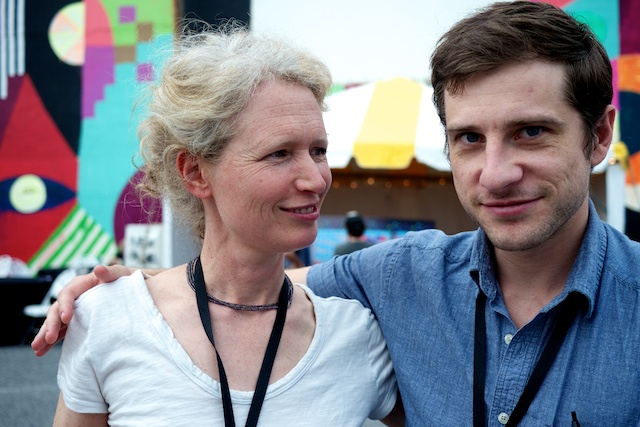
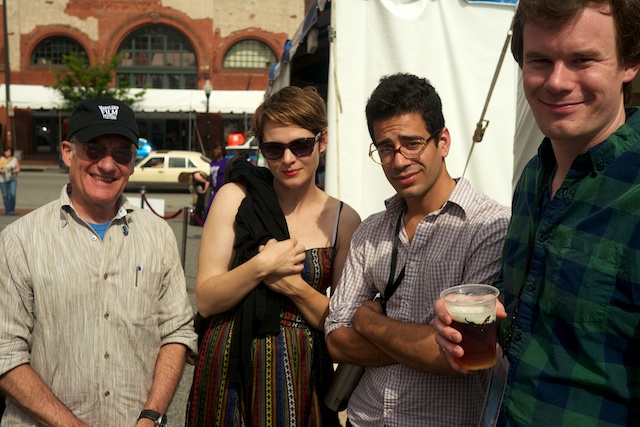
The Maryland Film Festival, which wrapped its 2012 edition on Sunday, is one of the East Coast’s most intimate and engaging film events. With 40 features, over 70 shorts and an amazingly healthy contingent of loyal filmmakers annually making the trip to Baltimore, Maryland functions as both a discovery festival and friendly pit stop for directors on the independent circuit. John Waters hosts a movie — this year Barbara Loden’s seminal and still influential Wanda — and takes the audience out partying afterwards; the Opening Night consists of shorts, not some star-bloated, sub-standard mini-major feature; and, for the second year in a row, replacing a day of panels is “Filmmakers Take Charge,” a private event gathering filmmakers, industry and press for a discussion of the state of our business. Among the attendees I got a chance to talk with in Baltimore last week were the Zellner brothers, Sophia Takal and Lawrence Levine, Shane Carruth, David Lowery, Matt Porterfield, Kate Lyn Sheil, Visit Films’ Ryan Kampe, the New Yorker‘s Richard Brody, Indiewire‘s Ann Thompson, and the Washington Post‘s Ann Hornaday. Pictured above are four more: from left to right, Maryland Film Festival director Jed Dietz; director (Sun Don’t Shine) Amy Seimetz; director of photography Nandan Rao (The International Sign for Choking); and director Joe Swanberg (V/H/S).

Joe Swanberg, Heidi Ewing and Craig Zobel were the organizers of this year’s “Filmmakers Take Charge,” the day-long summit meeting at which issues of vital interest to attending filmmakers were tossed around and debated in a candid, spin-free setting. Filmmakers were encouraged to share budgets and revenue statements, to discuss both their ambitions and frustrations, and to address directly their issues with the attending press and members of the industry. With food and coffee on the side, the event took place in a tent opposite the Charles Street Theater, and the chairs were set up in a circle, avoiding the speaker/audience divide that turns so many industry events into utter snooze-fests. The conversations were off the record, so I can’t write specifically about what was said. The overall focus, however, was on theatrical distribution, and how individual filmmakers can put together DIY releases. Fundraising for such releases, staffing them, and gauging their success were discussed in detail, as were such related topics as the timing of VOD windows and festival screening fees. As a journalist I was particularly interested when the topic turned to festival coverage, film reviews and how to get them, the difference between reviews and feature editorial, and whether critics should judge independent films differently than studio films. There was a real exchange of information here between the filmmakers and the press. Filmmakers shared their pique at no coverage and, sometimes, bad coverage, while press discussed how to craft a good pitch, the challenges some face in garnering space in their publications for independent films (not a problem at Filmmaker!), what good publicists do and why feature editorial pieces can be more helpful to directors than reviews. Pictured above: directors Alison Bagnall and Kentucker Audley. Audley gives a starmaking performance in Amy Seimetz’s Sun Don’t Shine, screening at the festival, and he plans to act later in the year in Bagnall’s latest.
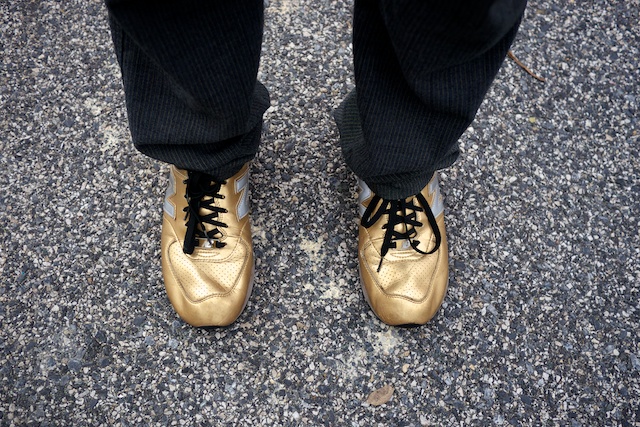
For festival fashion, John Waters is always at his sartorial best. But I also appreciated David Zellner’s gold sneakers, pictured here.
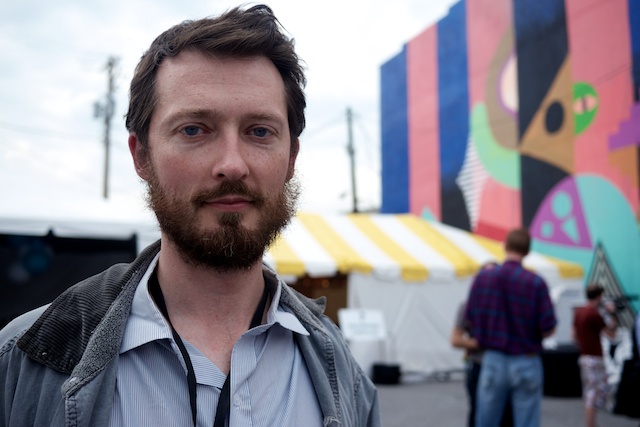
As I mentioned above, short films achieve special prominence at the Maryland Film Festival. Cutter Hodierne’s much-lauded Fishing without Nets, a breathlessly edited, gorgeously shot tale of a reluctant Somali pirate, was the clear highlight of the Opening Night program, held in the large MICA Brown Center and hosted by Salon’s Andrew O’Hehir. Another standout was Christina Choe’s I Am John Wayne, a sensitively directed yet emotionally cool neo-realist tale about a grieving teen — a young black cowboy — and his horse ride through Coney Island. And in Eric Steele’s Cork’s Cattlebaron, Robert Longstreet gives a tour de force performance as a garrulous corporate gladhander unaware of the true purpose of his fancy dinner meeting. In the next day’s Narrative Shorts program I especially liked Wonder Valley, Andrew van Baal’s tonally assured, beautifully weird melodrama about a retro musician (musician Tom Brisseau in his acting debut) retreating into the desert with his guitar following a harsh breakup. And while I didn’t catch all of the wonderfully titled Passion of the WTF Shorts Program, I saw two standouts. Andrew Kavanaugh’s At the Formal is a masterfully directed, near-single take depiction of a high school formal that reveals itself to be something altogether more sinister. And Carlos Puga’s Satan Since 2003 is a hilarious and loose-limbed mixture of doc and fiction (at least, I hope elements of it are fictitous) about underground moped gangs in Richmond, Virginia. Pictured above: director Dustin Guy Defa, whose Family Nightmare, a disquieting and heartbreaking work of found footage and deliberately bad sound, is one of the year’s best shorts. It played in Maryland’s Documentary Shorts program.
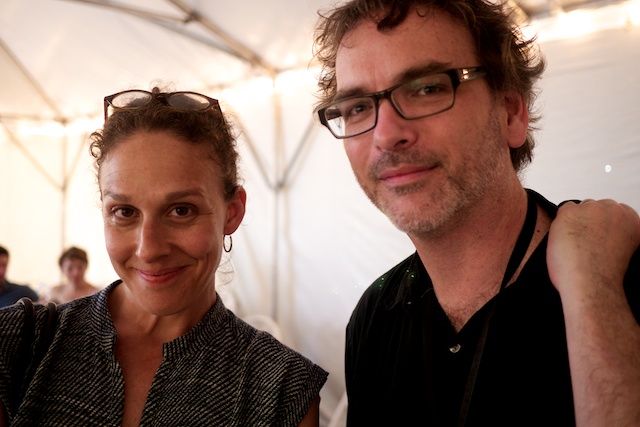
Finally, above are the Gradys — Rachel and Matt. They’re not related, though — just both attending the “Filmmakers Take Charge” event. Along with her partner Heidi Ewing, Rachel Grady directed the documentary Detropia, which the filmmakers are releasing themselves in Detroit and across the U.S. this late Summer and Fall. Matt Grady heads up the distributor Factory 25, which launches Alex Ross Perry’s The Color Wheel in theaters next week.
